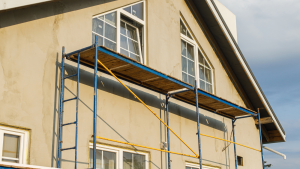If you live in an area where there is a lot of snowfall and very cold winters, stucco might not seem like a feasible option.
Regardless of the environment where you live, stucco might be a great alternative. It might even be very helpful for homes that frequently endure severely cold winters. Read our presentation to learn more.
Stucco has a high level of weather resistance.
Regardless of the environment where you live, stucco might be a great alternative. It might even be very helpful for homes that frequently endure severely cold winters.
The most important factor is always to make sure you’re working with a stucco contractor who consistently produces high-quality work.
Stucco is unaffected by cold.
The best time to actually install the stucco is when it is warmer outside, or at the very least above freezing. Several steps in the installation process become substantially more challenging in colder weather due to the potential for the mixture to freeze up and set up more quickly than you want it to.
Despite this, cold weather won’t significantly affect the stucco that has already been installed, however, it might make installation less successful.
Stucco is easy to fix.
Wintertime stucco damage from snow, ice, or extreme cold is always a possibility, but the good news is that the majority of stucco damage is rather easy to repair.
Extremely durable stucco
Although stucco is often a tough material, being exposed to the elements can cause harm. As a naturally porous material, stucco has a barrier underneath that prevents moisture from penetrating your home.
If you live close to Wayne and need work on it examined, constructed, or repaired, contact our stucco experts.


